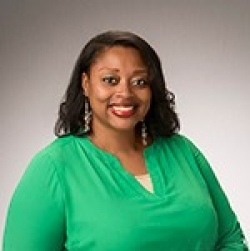YONE Profile: Dr. Bridgette Brawner
In this Year of the Nurse Educator, the Fitzpatrick College of Nursing is proud to feature faculty and why they do what they do.
Bridgette M. Brawner, PhD, MDiv, APRN is The Richard and Marianne Kreider Endowed Professor in Nursing for Vulnerable Populations

Why did you seek this role?
Truthfully, I never saw myself in the position I have now as a Professor. I was the first in my family to go to college so a lot of this life was foreign to me. As an undergrad, all I knew was that I wanted to save babies lives and help support families during their time in the NICU. I did that and absolutely loved it. While there, I got bitten by the research bug when I was tasked to help with a research study to bring our central line infections down. The “Safe Passages” project in CHOP’s NICU helped me see how research could be used to do everything that I wanted to do, and on a larger scale. Other aspects of my clinical practice also drove decisions I would make later in my career, like seeing the relationship between mental health and sexual risk behaviors, and wanting to design programs that would help people reach their full health potential. Being a nurse educator ties it all together because I am able to bring these experiences into the classroom, helping nurses across academic levels chart their own paths in the discipline.
How did you become a Nurse Educator?
When I was doing my PhD I was actually more interested in administration than education. But then my mentor, Dr. Loretta Sweet Jemmott, challenged me to lend my talents, passion and expertise to academia so that future students could have exposure to someone who looked like them and/or had similar life experiences. Don’t get me wrong, there is nothing wrong with administration, but I find my greatest joy in teaching others and using all that God has blessed me with to have an impact on future generations through nursing education.
What do you like about your role?
Huge selling points for me were autonomy and flexibility. When you teach a class, you create your syllabus and course activities, deciding what are the most pressing things people need to learn and experience before they launch into their careers. You also have an ability to teach (as well as learn from) students from all over the world and from so many different backgrounds. I consider it to be a privilege, as well as a sacred ability to shape the future of our field.
Best moment as an educator?
My best moment is seeing my students thrive. I love that so many of them keep in touch and update me on their lives. Many have gone on to get doctoral degrees, launch independent practices, transform care in their practice environments and so many other endeavors. I am inspired by their drive and commitment to see the world be a better place.
Advice for someone who is considering it?
If someone is considering being a nurse educator I would encourage them to be open to it. I never imagined by life would be where it is today, but I can truly say that I am 100% fulfilled and absolutely love my role as a nurse educator. Being in this profession has not only opened up how I see and engage with the world, but I’ve also been able to travel the world to share my work and educate others (e.g., Melbourne, Australia; Bali, Indonesia; Rome, Italy). So even if they can’t see it for themselves, they should talk to nurse educators to get their feedback and consider a career in nursing education for themselves.
